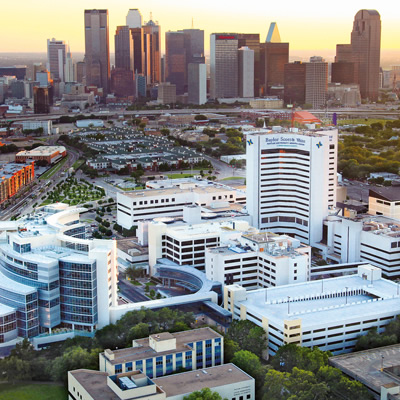What is heart valve surgery?
Heart valve surgery is used to treat heart valve disease, which happens when one or more of the heart's four valves aren't working properly. These valves—mitral, tricuspid, pulmonary and aortic—help keep blood flowing in the right direction through the heart.
Each valve has flaps (called leaflets in the mitral and tricuspid valves, and cusps in the aortic and pulmonary valves) that open and close with each heartbeat. When these valves become damaged and don't open or close properly, it can affect blood flow through the heart and the rest of your body.
During heart valve surgery, the surgeon will repair or replace the damaged valve(s) through traditional open-heart surgery or a less invasive method, depending on your age, overall health, what kind of valve problem you have and how severe it is.
When is heart valve surgery necessary?
You might need heart valve surgery if one of your heart valves—like the aortic, mitral, pulmonary or tricuspid valve— isn’t working properly. Valve problems are usually caused by a few main issues:
- Regurgitation (leakage): When a valve doesn’t close fully, causing blood to flow backward. This makes your heart work harder. Common types are mitral valve regurgitation (blood leaking into the left atrium) and tricuspid valve regurgitation (blood leaking into the right atrium).
- Stenosis (narrowing): When a valve becomes stiff or narrowed, limiting blood flow. For example, aortic valve stenosis makes it harder for blood to flow from your heart to the rest of your body, causing your heart to pump harder.
- Endocarditis (infection): Bacteria can infect a heart valve, causing growths that may damage the valve or structures around the valve.
Other causes can include congenital heart disease, where valves don’t form properly at birth, like mitral valve prolapse or a bicuspid aortic valve. Severe pulmonary valve disease can also cause shortness of breath and swelling, especially when related to heart conditions treated in childhood.
Types of heart valve surgeries
Heart valve surgery is a procedure that can repair or replace a damaged valve in your heart, helping it pump blood more effectively. Depending on your specific condition and overall health, there are different ways to perform the surgery. Your healthcare team will guide you in choosing the best option for you.
- Open-heart surgery: The traditional approach, where the chest is opened to access and repair or replace the heart valve.
- Minimally invasive surgery: This method involves smaller cuts and specialized tools, which can often mean a quicker recovery and less pain after surgery.
- Catheter-based surgery: In some cases, a new valve can be inserted using a small tube (catheter) through a blood vessel, typically in the leg, eliminating the need for open surgery.
Heart valve replacement surgery
Heart valve replacement surgery involves removing and replacing a damaged valve with a new one made from animal tissue or a durable material like metal or carbon. These new valves are safe for your body, so your immune system won't reject them. Options include:
- Transcatheter aortic valve replacement (TAVR): TAVR involves having a new heart valve placed inside the old one. It is a minimally invasive procedure, which can be done without open-heart surgery.
- Open-heart aortic, pulmonary or mitral valve replacement: Your surgeon replaces your faulty valve with a mechanical valve or tissue valve, through either an open or minimally invasive approach.
- Transcatheter mitral valve repair (TMVR): Like TAVR, TMVR is a procedure that allows your surgeon to fix a leaking valve without the need for open-heart surgery. This minimally invasive procedure can benefit people with damaged mitral valves who are not candidates for surgical repair.
Valve repair surgery
A repair surgery helps fix a damaged or faulty valve while keeping most of your natural tissue intact. While mitral valve repairs are the most common, this type of surgery can also be used to treat issues with the aortic and tricuspid valves.
- Transcatheter edge-to-edge repair (TEER) is a form of minimally invasive mitral valve repair that involves “clipping” or “clasping” your faulty valve with a tiny device to minimize the leak. The device is inserted through a catheter that goes through a blood vessel in your leg.
- Valvuloplasty is a catheter-based interventional procedure often used to treat stenosis (narrowing of the heart valves). Your physician uses a catheter to guide a balloon to your heart valve, where the balloon is expanded to help the flaps of the heart valve open.
- Open-heart aortic or mitral valve repair: Your surgeon can work to correct your valve condition and sometimes this is performed through an open chest approach or a minimally invasive option, including robotic surgery.
- Annuloplasty is primarily a surgical procedure that helps repair heart valves by tightening or strengthening the valve's ring. This helps the valve work better and prevents leaks, often using a less invasive method with a catheter to make the procedure easier and quicker.
Benefits of heart valve surgery
When you were first diagnosed with heart valve disease, your cardiologist may have recommended medications. Although medications can help you manage symptoms, in many cases they can’t treat heart valve disease or fix a heart valve problem.
Heart valve surgery can treat your condition effectively and, in turn, reduce your risk of heart valve disease complications, such as:
- Atrial fibrillation
- Congestive heart failure
- Stroke
Even if medications helped alleviate some symptoms, treating your heart valve condition can give you more energy and reduce chest pain and shortness of breath. As a result, you’re likely to have more energy for daily activities and things you enjoy doing.
How to prepare for heart valve surgery
Your surgery team will give you instructions and let you know what to expect during the weeks leading up to your procedure. Your pre-operative instructions will vary depending on the type of procedure you will have, your overall health and your other medical conditions.
However, in general, you can expect the following:
- In the weeks leading up to surgery, you will need to quit smoking and stop taking some medications, such as ibuprofen, aspirin and blood-thinning medications.
- You will have blood, urine and imaging tests to ensure you are healthy enough for surgery and to help the surgery team plan your procedure.
- The night before the surgery, you will need to stop eating and drinking. You will have to shower with a special cleanser.
- Be sure to bring toiletries, a robe, slippers, a cell phone and charger, medications and a change of clothes. Also, arrange for someone to drive you home once you're discharged from the hospital.
What to expect
Before heart valve surgery
Before your surgery, your anesthesiologist will talk to you. Be sure to let them know if you have any crowns, bridges or loose teeth so they can take extra care during the procedure while you are asleep.
In the operating room, the care team will give you medication to help you relax and feel drowsy. They’ll connect you to a heart monitor, and you'll breathe oxygen through a face mask. Then, the anesthesiologist will administer general anesthesia to make sure you're completely asleep during the surgery. A breathing tube will help you breathe while you're under anesthesia, which may cause a mild sore throat afterward.
During heart valve surgery
Depending on the type of surgery you're having, you may be given general anesthesia or connected to a heart-lung bypass machine that will take over the function of your heart and lungs during the procedure.
If you need valve repair surgery, your doctor will explain the specific approach they plan to use based on your condition and the affected valve.
During valve replacement surgery, your damaged valve will be removed, and a new valve will be sewn in place. Depending on your condition, your doctor may perform either a minimally invasive procedure or an open-chest surgery.
After heart valve surgery
After your heart valve surgery, you'll likely spend at least one day in the intensive care unit (ICU). If you had open-heart surgery, you may need to stay in the hospital for three to seven days, but if you had minimally invasive surgery, your stay may be shorter.
Once stable, you'll move from the ICU to a regular hospital room for a few more days.
While you're in the hospital, your care team will:
- Monitor your health and check for signs of infection
- Keep an eye on your blood pressure, heart rate and breathing
- Help manage any pain you may have
Before leaving the hospital, you'll receive instructions on how to watch for signs of infection around your incisions, take your medications correctly, care for your incisions and manage pain and other symptoms as you recover.
Heart valve surgery recovery
After heart valve surgery, your doctor or healthcare team will let you know when it’s safe to return to your usual activities. You’ll also need regular follow-up appointments to monitor your heart health, which may include tests.
Your recovery plan may also include cardiac rehabilitation, a supervised program that helps you learn how to care for your heart. You’ll get tips on diet, exercise and stress management to keep your heart and valves healthy. Cardiac rehab also helps you build a healthy routine, which can improve your mental health by boosting your mood and keeping you motivated as you recover.
Making heart-healthy lifestyle changes can help keep your heart in good condition. These changes include eating a balanced diet, getting regular exercise, managing stress and avoiding smoking or tobacco.
Find a location near you
Your heart valve surgery will be performed by an experienced cardiovascular surgeon at one of our many locations in Central and North Texas, with follow-up care and cardiac rehabilitation also available at Baylor Scott & White hospital and clinic locations close to home.

Baylor Scott & White All Saints Medical Center - Fort Worth
1400 8th Ave , Fort Worth, TX, 76104
Baylor Scott & White Cardiac and Thoracic Surgery - Fort Worth
1250 8th Ave Ste 200, Fort Worth, TX, 76104- Monday: 8:00 am - 4:30 pm
- Tuesday: 8:00 am - 4:30 pm
- Wednesday: 8:00 am - 4:30 pm
- Thursday: 8:00 am - 4:30 pm
- Friday: 8:00 am - 4:30 pm
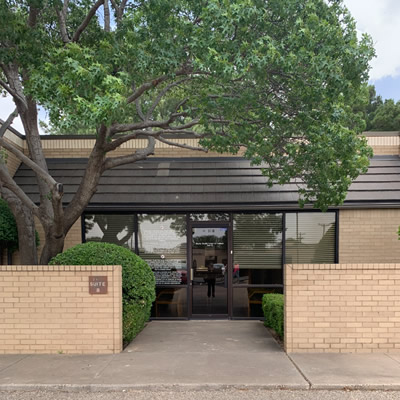
Baylor Scott & White Cardiac and Thoracic Surgery - Lubbock
3711 22nd St Ste B, Lubbock, TX, 79410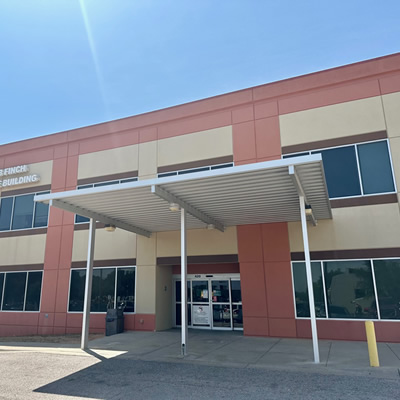
Baylor Scott & White Cardiac and Thoracic Surgery - Odessa
420 E 6th St Ste 102, Odessa, TX, 79761
Baylor Scott & White Cardiac and Thoracic Surgery - Weatherford
2035 Fort Worth Hwy Ste 100, Weatherford, TX, 76086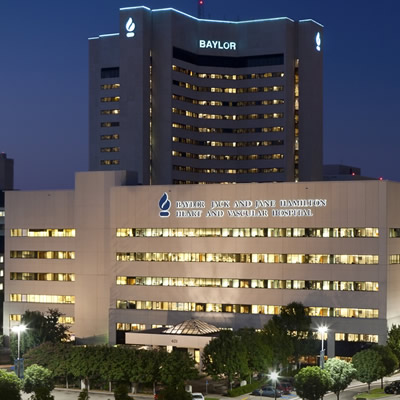
Baylor Scott & White Cardiac Surgery - Dallas
621 N Hall St Ste 120, Dallas, TX, 75226- Monday: 8:30 am - 4:30 pm
- Tuesday: 8:30 am - 4:30 pm
- Wednesday: 8:30 am - 4:30 pm
- Thursday: 8:30 am - 4:30 pm
- Friday: 8:30 am - 4:30 pm

Baylor Scott & White Cardiac Surgery Specialists - Denton
3333 Colorado Blvd , Denton, TX, 76210- Monday: 8:30 am - 5:00 pm
- Tuesday: 8:30 am - 5:00 am
- Wednesday: 8:30 am - 5:00 pm
- Thursday: 8:30 am - 5:00 pm
- Friday: 8:30 am - 5:00 pm
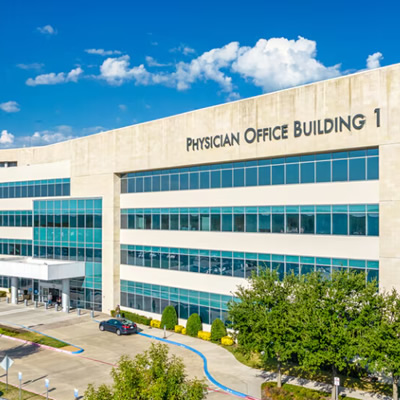
Baylor Scott & White Cardiac Surgery Specialists - McKinney
5236 W University Dr Ste 4900, McKinney, TX, 75071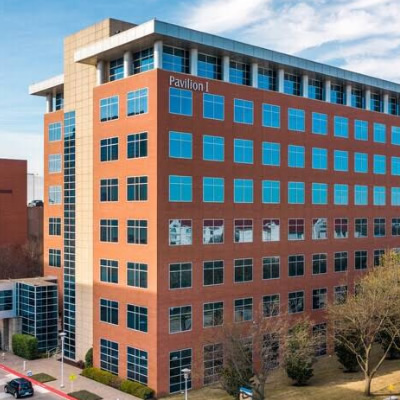
Baylor Scott & White Cardiac Surgery Specialists - Plano
4708 Alliance Blvd Pavilion I, Ste 540, Plano, TX, 75093- Monday: 8:30 am - 4:30 pm
- Tuesday: 8:30 am - 4:30 pm
- Wednesday: 8:30 am - 4:30 pm
- Thursday: 8:30 am - 4:30 pm
- Friday: 8:30 am - 4:30 pm
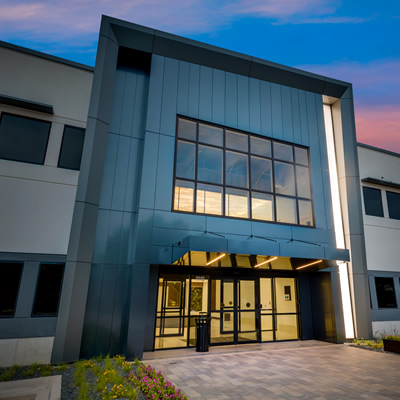
Baylor Scott & White Cardiothoracic Surgery - Irving
1110 Cottonwood Ln Ste 215, Irving, TX, 75038- Monday: 8:30 am - 4:30 pm
- Tuesday: 8:30 am - 4:30 pm
- Wednesday: 8:30 am - 4:30 pm
- Thursday: 8:30 am - 4:30 pm
- Friday: 8:30 am - 4:30 pm

Baylor Scott & White Cardiovascular Consultants - Denton
3333 Colorado Blvd , Denton, TX, 76210- Monday: 8:30 am - 5:00 pm
- Tuesday: 8:30 am - 5:00 pm
- Wednesday: 8:30 am - 5:00 pm
- Thursday: 8:30 am - 5:00 pm
- Friday: 8:30 am - 5:00 pm

Baylor Scott & White Cardiovascular Consultants - Flower Mound
4421 Long Prairie Rd Ste 200, Flower Mound, TX, 75028- Monday: 8:30 am - 5:00 pm
- Tuesday: 8:30 am - 5:00 pm
- Wednesday: 8:30 am - 5:00 pm
- Thursday: 8:30 am - 5:00 pm
- Friday: 8:30 am - 5:00 pm

Baylor Scott & White Cardiovascular Consultants - Grapevine
2020 W State Hwy 114 Ste 200, Grapevine, TX, 76051- Monday: 8:00 am - 5:00 pm
- Tuesday: 8:00 am - 5:00 pm
- Wednesday: 8:00 am - 5:00 pm
- Thursday: 8:00 am - 5:00 pm
- Friday: 8:00 am - 4:00 pm
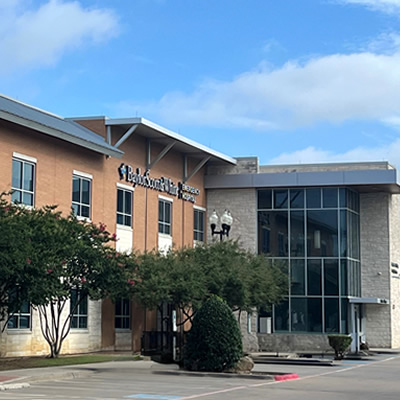
Baylor Scott & White Cardiovascular Consultants - Keller
620 S Main St Ste 240, Keller, TX, 76248- Monday: 8:00 am - 5:00 pm
- Tuesday: 8:00 am - 5:00 pm
- Wednesday: 8:00 am - 5:00 pm
- Thursday: 8:00 am - 5:00 pm
- Friday: 8:00 am - 4:00 pm

Baylor Scott & White Cardiovascular Consultants - Plano
6000 W Spring Creek Pkwy Ste 220, Plano, TX, 75024- Monday: 8:30 am - 5:00 pm
- Tuesday: 8:30 am - 5:00 pm
- Wednesday: 8:30 am - 5:00 pm
- Thursday: 8:30 am - 5:00 pm
- Friday: 8:30 am - 5:00 pm
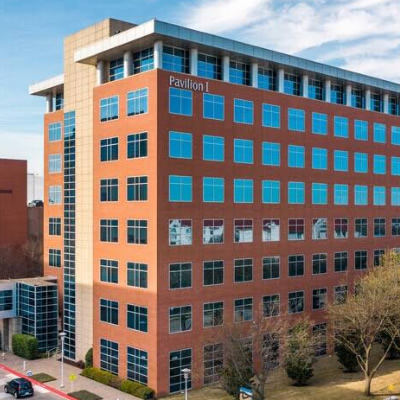
Baylor Scott & White Cardiovascular Consultants - Plano II
4708 Alliance Blvd Pavilion I, Ste 450 , Plano, TX, 75093- Monday: 8:30 am - 4:45 pm
- Tuesday: 8:30 am - 4:45 pm
- Wednesday: 8:30 am - 4:45 pm
- Thursday: 8:30 am - 4:45 pm
- Friday: 8:30 am - 4:45 pm

Baylor Scott & White Cardiovascular Consultants at The Star
3800 Gaylord Pkwy Ste 910, Frisco, TX, 75034- Monday: 8:30 am - 5:00 pm
- Tuesday: 8:30 am - 5:00 pm
- Wednesday: 8:30 am - 5:00 pm
- Thursday: 8:30 am - 5:00 pm
- Friday: 8:30 am - 5:00 pm
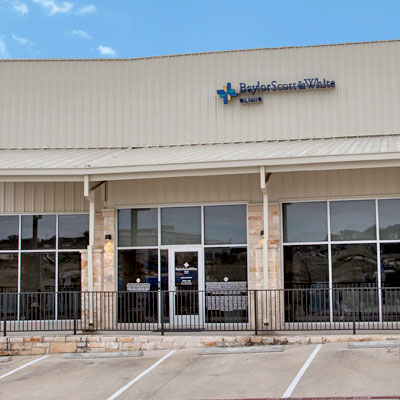
Baylor Scott & White Clinic - Lakeway
3108 Ranch Rd 620 S , Lakeway, TX, 78738- Monday: 8:00 am - 5:00 pm
- Tuesday: 8:00 am - 5:00 pm
- Wednesday: 8:00 am - 5:00 pm
- Thursday: 8:00 am - 5:00 pm
- Friday: 8:00 am - 5:00 pm
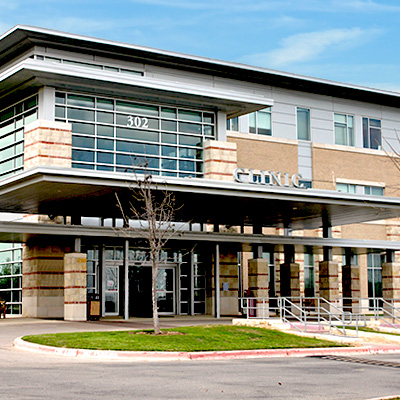
Baylor Scott & White Clinic - Round Rock 302 University
302 University Blvd , Round Rock, TX, 78665- Monday: 8:00 am - 5:00 pm
- Tuesday: 8:00 am - 5:00 pm
- Wednesday: 8:00 am - 5:00 pm
- Thursday: 8:00 am - 5:00 pm
- Friday: 8:00 am - 5:00 pm
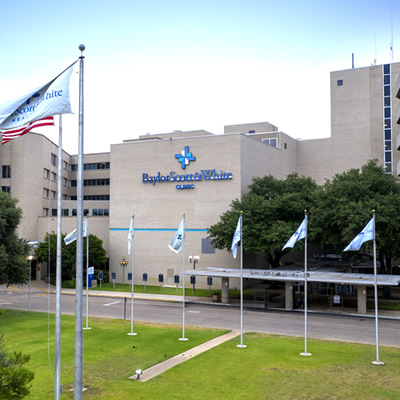
Baylor Scott & White Clinic - Temple
2401 S 31st St , Temple, TX, 76508- Monday: 8:00 am - 5:00 pm
- Tuesday: 8:00 am - 5:00 pm
- Wednesday: 8:00 am - 5:00 pm
- Thursday: 8:00 am - 5:00 pm
- Friday: 8:00 am - 5:00 pm

Baylor Scott & White Heart and Vascular Hospital - Dallas
621 N Hall St , Dallas, TX, 75226
Baylor Scott & White Heart and Vascular Hospital - Fort Worth
1400 8th Ave Bldg A, 6th Floor, Fort Worth, TX, 76104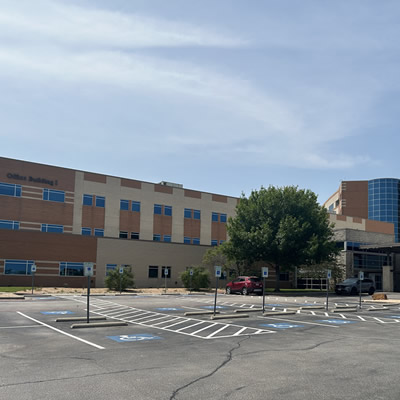
Baylor Scott & White Hillcrest Cardiology Clinic
50 Hillcrest Medical Blvd Ste 303, Waco, TX, 76712- Monday: 8:00 am - 5:00 pm
- Tuesday: 8:00 am - 5:00 pm
- Wednesday: 8:00 am - 5:00 pm
- Thursday: 8:00 am - 5:00 pm
- Friday: 8:00 am - 5:00 pm
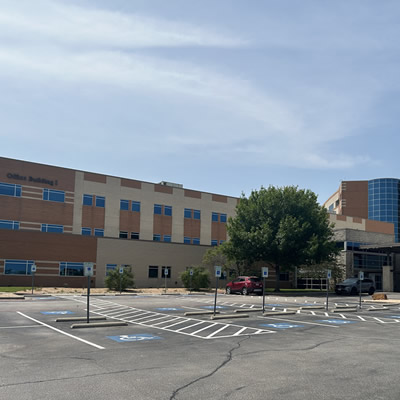
Baylor Scott & White Hillcrest Cardiothoracic and Vascular Surgery
50 Hillcrest Medical Blvd Ste 303-B, Waco, TX, 76712- Monday: 8:00 am - 5:00 pm
- Tuesday: 8:00 am - 5:00 pm
- Wednesday: 8:00 am - 5:00 pm
- Thursday: 8:00 am - 5:00 pm
- Friday: 8:00 am - 5:00 pm
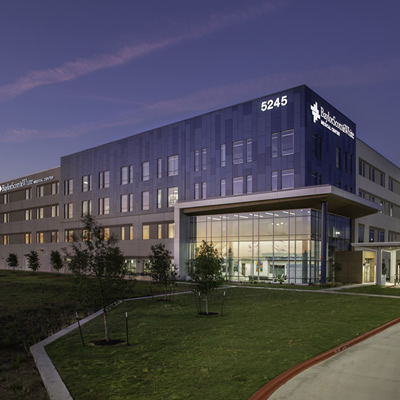
Baylor Scott & White Medical Center - Austin
5245 W US Hwy 290 Service Rd , Austin, TX, 78735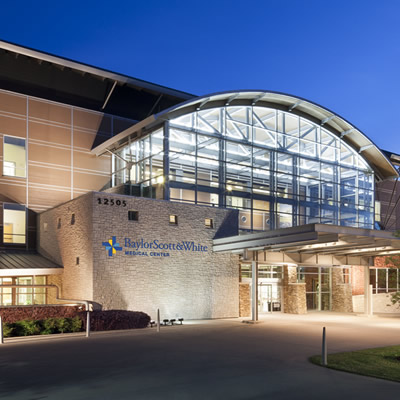
Baylor Scott & White Medical Center - Centennial
12505 Lebanon Rd , Frisco, TX, 75035
Baylor Scott & White Medical Center - Grapevine
1650 W College St , Grapevine, TX, 76051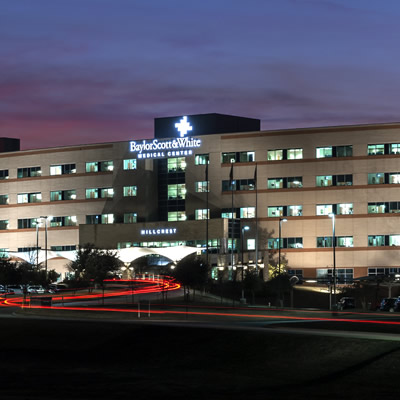
Baylor Scott & White Medical Center - Hillcrest
100 Hillcrest Medical Blvd , Waco, TX, 76712
Baylor Scott & White Medical Center - Irving
1901 N MacArthur Blvd , Irving, TX, 75061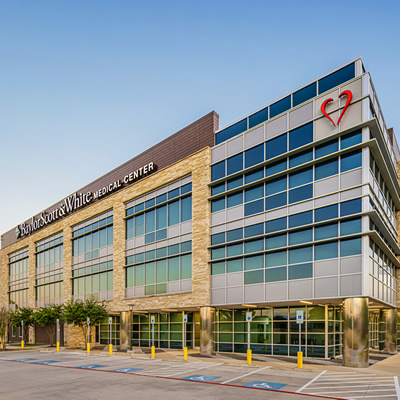
Baylor Scott & White Medical Center - Lake Pointe
6800 Scenic Dr , Rowlett, TX, 75088
Baylor Scott & White Medical Center - McKinney
5252 W University Dr Highway 380 at Lake Forest Drive, McKinney, TX, 75071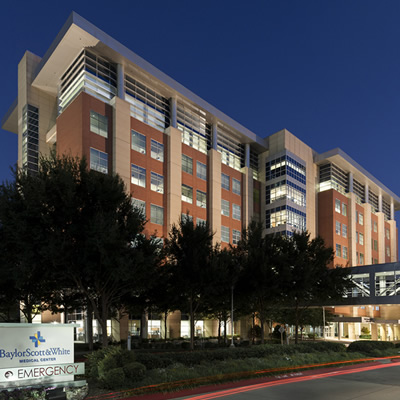
Baylor Scott & White Medical Center - Plano
4700 Alliance Blvd , Plano, TX, 75093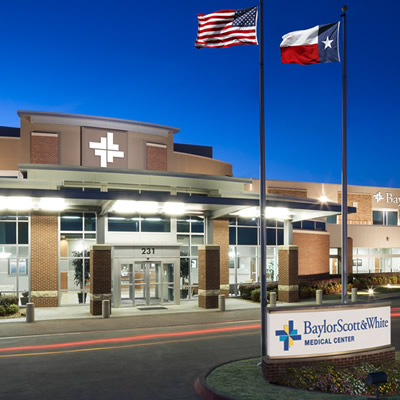
Baylor Scott & White Medical Center - Sunnyvale
231 S Collins Rd , Sunnyvale, TX, 75182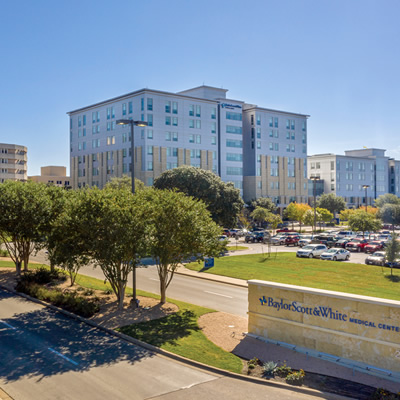
Baylor Scott & White Medical Center - Temple
2401 S 31st St , Temple, TX, 76508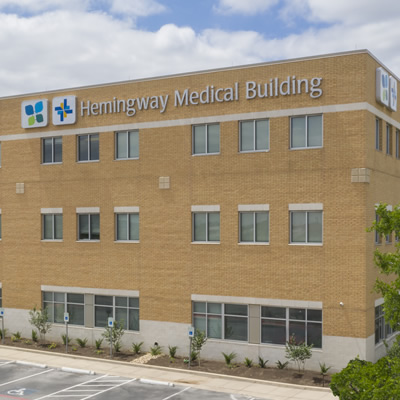
Baylor Scott & White Specialty Clinic - Killeen Hemingway
2405 S Clear Creek Rd , Killeen, TX, 76549- Monday: 8:00 am - 5:00 pm
- Tuesday: 8:00 am - 5:00 pm
- Wednesday: 8:00 am - 5:00 pm
- Thursday: 8:00 am - 5:00 pm
- Friday: 8:00 am - 5:00 pm
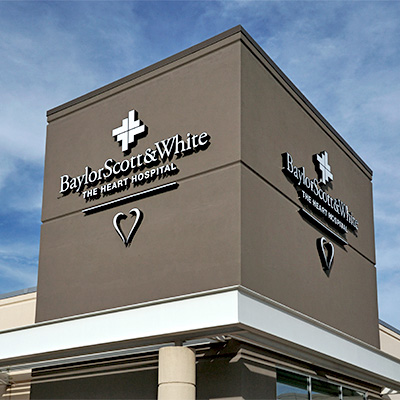
Baylor Scott & White The Heart Hospital - Denton
2801 S Mayhill Rd , Denton, TX, 76208
Baylor Scott & White The Heart Hospital - McKinney
5268 W University Dr , McKinney, TX, 75071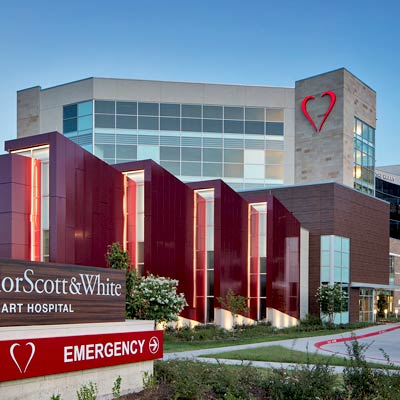
Baylor Scott & White The Heart Hospital - Plano
1100 Allied Dr , Plano, TX, 75093
Baylor Scott & White The Heart Hospital Heart Recovery Center - Plano
4716 Alliance Blvd Pavilion II, Ste 350, Plano, TX, 75093- Monday: 8:00 am - 5:00 pm
- Tuesday: 8:00 am - 5:00 pm
- Wednesday: 8:00 am - 5:00 pm
- Thursday: 8:00 am - 5:00 pm
- Friday: 8:00 am - 5:00 pm

Baylor Scott & White The Heart Hospital – Plano Heart Valve Center of Texas
4716 Alliance Blvd Pavilion II, Ste 300, Plano, TX, 75093- Monday: 8:00 am - 5:00 pm
- Tuesday: 8:00 am - 5:00 pm
- Wednesday: 8:00 am - 5:00 pm
- Thursday: 8:00 am - 5:00 pm
- Friday: 8:00 am - 5:00 pm
